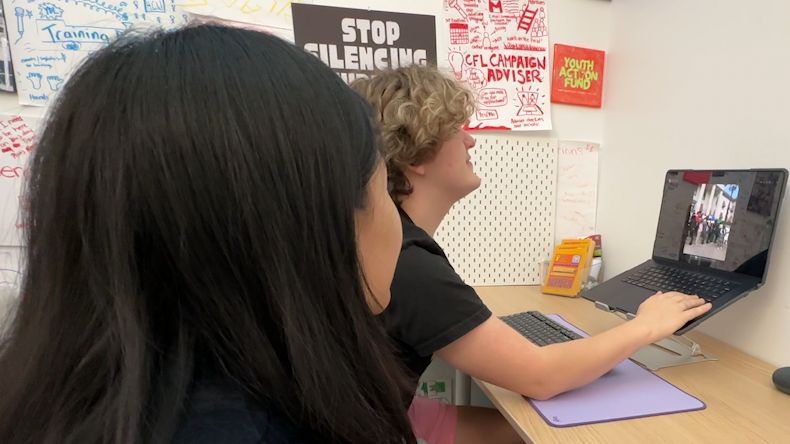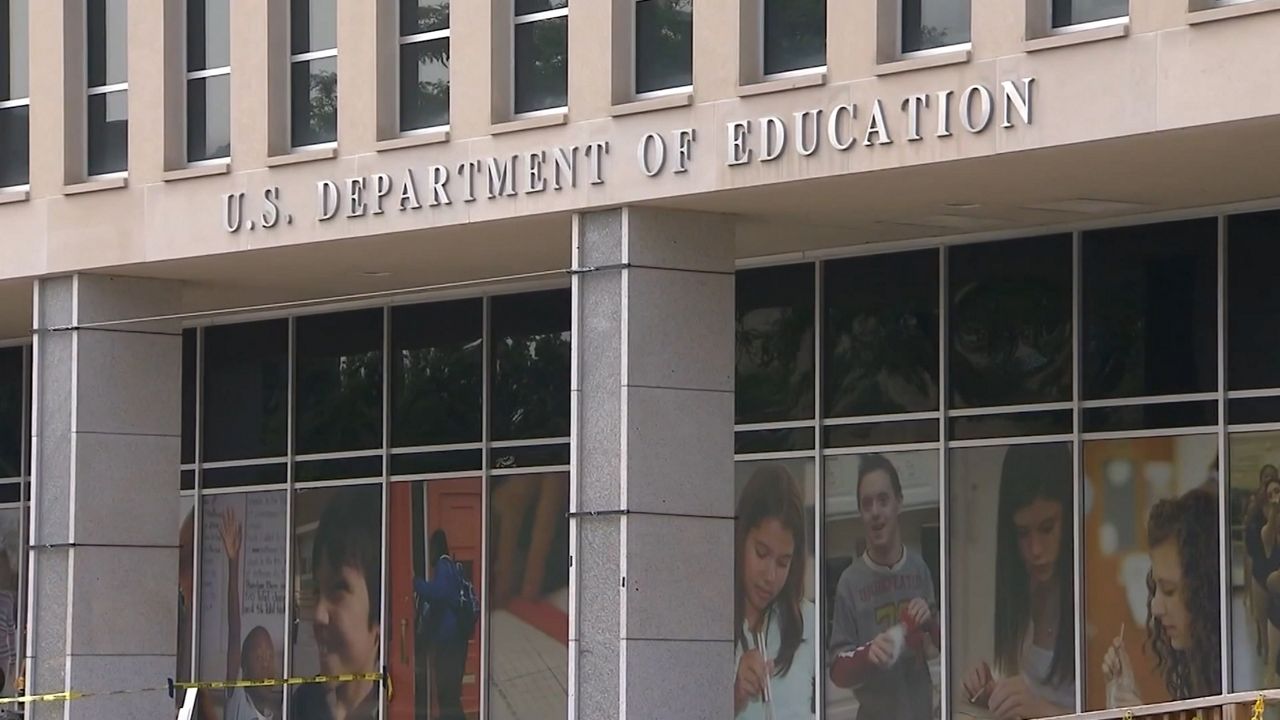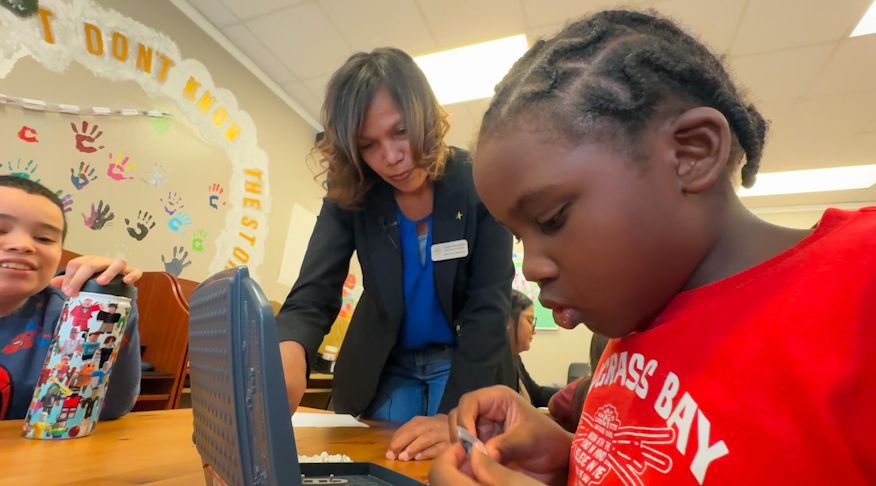ORLANDO, Fla. — University of Central Florida student Cecilia Gonzalez Herrera is among those suing the Trump administration in federal court for rolling back and revoking TPS protections for Venezuelans.
The lawsuit argues TPS holders cannot return safely to Venezuela, and that federal law does not allow an administration to cut short a TPS period.
Gonzalez Herrera says she feels optimistic of a ruling in her favor and feels empowered to fight back.
“Something I learned on early as a Venezuelan myself is that when things look ugly, you either have two choices — you either flee or you fight," she said. "And I already fled a country once, so I’m choosing to fight."
The lawsuit was filed Wednesday in California by the National TPS Alliance and a group of Venezuelans like Gonzalez Herrera, whose TPS protection expires on Sept 10.
Gonzalez Herrera — who will graduate from UCF with a political science degree in May — landed back in Orlando on Friday after spending a few days in California hosting a press conference with plaintiffs on the suit.
She was in Washington, D.C. last week looking at grad school programs, but said without the certainty of protections, those plans are on standby.
The 50-page lawsuit says the Department of Homeland Security’s decision illegally revoked an 18-month extension of TPS for Venezuelans that the Biden administration granted in January.
The lawsuit also says the rolling back of these protections deprives 600,000 Venezuelans of their right to live and work legally in the U.S.
Gonzalez Herrera has been an activist advocating for the Venezuelan American community for years.
“I think the decision was very simple," she said. "Like to me, it felt like the right thing, it felt that all my years in activism prepped me for being able to face a new challenge. Suing the United States was never on my plan, career or goals, but I feel like I have the responsibility to speak up for all the other Venezuelans that can’t.”
The lawsuit claims most TPS holders lack any criminal history.
A UCF student is suing the US government in federal court for revoking TPS protections for Venezuelans. "When things look ugly, you have two choices, you either flee or you fight. And I already fled a country once, so I'm choosing to fight.” @MyNews13 pic.twitter.com/yNwEMuslWX
— Maria Serrano TV News Reporter (@mserranotv) February 21, 2025
Gonzalez Herrera is also an applicant on her parents’ asylum application.
Earlier Friday she met with Rep. Maxwell Frost to explore legislative options on what else can be done.
The lawsuit also orders defendants to ensure the TPS extension issued on Jan. 17 — when extended protections through October 2026 — remains in full effect.
President Donald Trump's administration ended protections that shielded roughly 350,000 Venezuelans from deportation, leaving them with two months before they lose their right to work in the U.S.
Homeland Security Secretary Kristi Noem's order affects 348,202 Venezuelans living in the U.S. with Temporary Protected Status slated to expire in April. That's about half of the approximately 600,000 who have the protection.
The remaining protections are set to expire at the end of September.
It's among the latest Trump administration actions targeting the immigration system, as officials work to make good on promises of cracking down on people illegally living in the country and to carry out the largest mass deportation effort in U.S. history.
Congress created TPS in 1990 to prevent deportations to countries suffering from natural disasters or civil strife, and give people authorization to work in increments of up to 18 months. About 1 million immigrants from 17 countries are protected by TPS, with Venezuelans being one of the largest groups of beneficiaries.
In the order, the Department of Homeland Security said conditions had improved enough in Venezuela to warrant ending protective status. Noem also said that the TPS designation had been used to allow people who otherwise didn't have an immigration pathway to settle in America.
“The sheer numbers have resulted in associated difficulties in local communities,” Noem's order said.
While a TPS designation gives people legal authority to be in the country, it doesn't provide a long-term path to citizenship. Immigrants are reliant on the government renewing their status when it expires.
TPS critics have said that over time, renewal of status becomes automatic, regardless of what's happening in the person’s home country.
The Associated Press contributed to this report.











